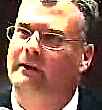The FCC has fined a Naples, FL man $10,000 for running an unlicensed station out of a church. Radio Mision Posible got multiple visits and warning letters before getting a pending-fine notice and, ultimately, the forfeiture itself. The Enforcement Action Database has logged 28 actions to-date for the year, bringing the overall running score to 239.
We’ve also updated our Mosquito Fleet Operational Analysis with additional information emailed from fellow participants. It looks like a total of 11 frequencies were occupied during the event, one more than previously estimated. Some frequencies were shared by more than one station. Continue reading “Microradio Notes”
Month: October 2002
Multiple Skirmishes @ the FCC
Lots of activism in the form of paper-filing is taking place right now at the Federal Communications Commission.
A broad coalition of consumer rights, labor, and media democracy groups – representing both people working within and outside the media industry – have filed a petition to extend the FCC’s public comment deadline on its proposal to radically overhaul media ownership rules. The current comment deadline is December 2 – the FCC only planned to give the public a 90-day window in which to comment on this massive proposal – the coalition wants the comment period extended until April. Continue reading “Multiple Skirmishes @ the FCC”
Press Freedom in the United States: "We're Number 17!"
Reporters Without Borders, an organization chartered with upholding Article 19 of the United Nations Universal Declaration of Human Rights (the freedom to communicate), has published its first-ever Worldwide Press Freedom Index, ranking the degree to which free media and speech rights exist in 139 countries.
The United States, home of the First Amendment and all that jazz, ranks #17 on the list – two spots below Costa Rica but three above Ecuador. Continue reading “Press Freedom in the United States: "We're Number 17!"”
Behind the Numbers @ the FCC Enforcement Bureau
At its October 10 meeting, the Commission’s decision to approve a standard for digital radio drew the headlines. But there were three items on the meeting’s agenda, one of which was the Enforcement Bureau’s release of its yearly Progress Report.
We’ve condensed the microradio-related enforcement news from the presentation and assembled a special report on what was revealed. My favorite highlight involves the Bureau’s number-fudging on enforcement actions finally catching up with it: the report claims fewer “pirate radio” enforcement actions than previous agency statements suggest. The discrepancy is not gigantic, but large enough to be noteworthy. Continue reading “Behind the Numbers @ the FCC Enforcement Bureau”
Mediageek Busts AP Nut
Paul Riismandel flails the Associated Press for manufacturing news about the state of the radio industry instead of devoting the time and energy to actually write about the real problems at hand.
It would be easy to claim that there’s some nefarious doings afoot to squelch criticism of the corporate media from other corporate media outlets, but this really is a case of a low-IQ reporter stringing together recent related events to construct a theme around which to write a story. Missing the real story completely, however, definitely consigns whoever wrote this turd to the short bus.
FCC Admits Ignorance on Digital Radio, Adopts Standard Anyway
It took only 14 minutes today for the Federal Communications Commission to dramatically decide the future of radio broadcasting.
The FCC adopted a Report and Order authorizing the rollout of digital radio. The vote allows radio stations to immediately install In-Band On-Channel (IBOC)-based transmission equipment and, upon notifying the FCC, begin broadcasting using the new transmission standard.
Stations will initially run a hybrid analog/digital signal, so as to not make everybody’s analog receivers immediately obsolete. At some undetermined time in the future the FCC will require radio broadcasting to go completely digital – the hope is when that time comes the public will have forked out the hundreds of dollars each for the new “HD Radios” they’ll need. Continue reading “FCC Admits Ignorance on Digital Radio, Adopts Standard Anyway”
FCC Adopts IBOC-DAB
Note: All audio is in 48kbps/44KHz mono MP3 format.
Speakers are listed in the order they appeared.

 W. Kenneth Ferree – Chief, FCC Media Bureau (1:54, 673K)
W. Kenneth Ferree – Chief, FCC Media Bureau (1:54, 673K)
Short and to the point, Ferree set up the charade by brandishing a logbook of some of the first radio licenses the FCC ever issued.
Notable quotes: Continue reading “FCC Adopts IBOC-DAB”
FCC Enforcement Bureau: Year Three Progress Report

 Linda Blair, Deputy Chief, FCC Enforcement Bureau (32kbps/22KHz MP3, 2:24, 562K)
Linda Blair, Deputy Chief, FCC Enforcement Bureau (32kbps/22KHz MP3, 2:24, 562K)
Notable quotes/analysis:
“Here in Washington, we have worked closely with other federal agencies concerned with national security and emergency preparedness, and our field agents have helped insure interference-free radio operation for law enforcement and security personnel in venues across the country, including, most recently, the IMF protests here in Washington.” Continue reading “FCC Enforcement Bureau: Year Three Progress Report”
Supreme Court Declines Grid Radio's Appeal
The U.S. Supreme Court has declined to hear the appeal of Jerry Szoka and GRID Radio, an unlicensed microradio station in Cleveland, Ohio who’s been sparring with the FCC since 1998 and went off the air after receiving a federal court injunction in 2000.
This is the second microradio case to be declined recently by the Supremes; the first was Minneapolis’ Beat Radio, whose petition for certiorari was turned away last year. Continue reading “Supreme Court Declines Grid Radio's Appeal”
Bring the Noise
The implementation of digital radio is on the agenda for the FCC’s meeting this Thursday (Oct. 10). According to the summary, “The Commission will consider a First Report and Order concerning digital operation by terrestrial radio broadcasters.”
What this means is that the FCC will lay out the ground rules for the rollout of in-band on-channel (IBOC) digital audio broadcasting. It has been noted by multiple sources (both from within the radio industry and without) that IBOC is a technological nightmare with the potential to cause massive interference between stations on both the FM and AM dials. Its sound quality may also be worse than conventional analog signals. Continue reading “Bring the Noise”